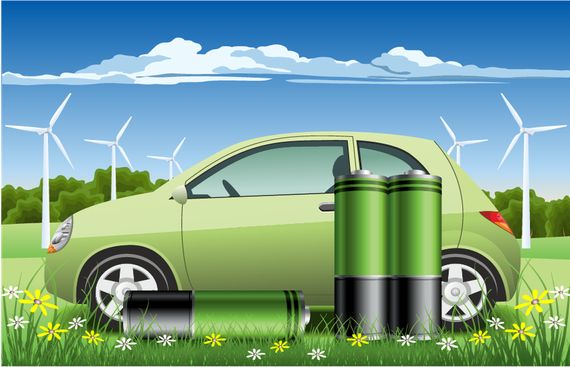How e-vehicles Could Restore Indian Fintech Business
Sangeetha P, Online Content Writer, siliconindia | Monday, 28 September 2020, 20:50 IST

Almost every sector is undergoing economical distress caused due to the novel coronavirus, and Fintech is no exception. According to KPMG International's Pulse of Fintech H1'20 report, the overall global fintech funding has surged by 25.6 billion of investment worldwide. During the lockdown India had witnessed about 42 percent of the rise in the usage of digital transactions, but, these transactions were restricted just to buy the essentials which in turn was inefficient in driving the Indian fintech sector. As the country houses numerous startups, it has created a favorable ecosystem for fintech. According to the ResearchAndMarkets report, the Indian fintech market is estimated to  1,920.16 billion in 2019 and is forecasted to touch
1,920.16 billion in 2019 and is forecasted to touch  6,207.41 billion by 2025 at a CAGR of 22.70 percent between 2020-2025. While India has also witnessed a high adoption rate of 87 percent on par with China.
6,207.41 billion by 2025 at a CAGR of 22.70 percent between 2020-2025. While India has also witnessed a high adoption rate of 87 percent on par with China.
 1,920.16 billion in 2019 and is forecasted to touch
1,920.16 billion in 2019 and is forecasted to touch  6,207.41 billion by 2025 at a CAGR of 22.70 percent between 2020-2025. While India has also witnessed a high adoption rate of 87 percent on par with China.
6,207.41 billion by 2025 at a CAGR of 22.70 percent between 2020-2025. While India has also witnessed a high adoption rate of 87 percent on par with China.
Could Fintech Revive its Business with Evs?
As the COVID-19 has restricted the digital payment modes just for healthcare, grocery, and bill payments and has brought travel, entertainment, fashion among others to a halt. This has certainly hindered the transaction volumes across the country and hammered the Indian fintech sector. Thus, to revive its business back to normal, the fintech could focus on the emerging Electric Vehicles(EV)market. The BIS Research report states that the EV market is predicted to grow at a CAGR of 43.13 percent and the installation of charging infrastructure is expected to grow at a CAGR of 42.38 percent while the vehicle battery market is foreseen to grow at a whopping CAGR of 60.15 percent during the period 2019-2030.
Lately, electric cars are gaining traction in the Indian market. It is been noted that the battery rates have been lowering by 73 percent since 2010 and the fuel price reaching the sky has forced the customers to opt-out for electric vehicles. However, the country's growing eco-friendly awareness has also played a vital role in influencing people to make a transition from fuel-based vehicles to electric ones.
On the other hand, these EVs are also supporting the Make in India program. The e-vehicle and its associated components manufacturing are expected to raise the share of manufacturing in the country's GDP of 25 percent by 2022. In addition to this, as the usage of e-vehicles increase, the oil imports could be reduced by $60 billion. Presently, 82 percent of the country's oil requirement is fulfilled through imports alone.
Future of EVs in India
During the lockdown, one thing that every one of us witnessed and agree with is the betterment in our environment, as a result of restricting vehicles that in turn eliminating the emissions from fuel-run vehicles and other industrial wastes across the country. Citing the environment improvement the government has also insisted to implement lockdown even after the pandemic once a month to restore the damage caused by the industries and vehicles throughout the month.
About 70 percent of the fuel is completely wasted on vehicles that cannot be recycled or recovered. However, the Evs are rechargeable. Thus, assures zero-wastage of energy.
Nitin Gadkari, Union Minister for Road Transport and Highways has also announced that India is expected to transform into an EV manufacturing hub by 2025. He further said that the government would provide all necessary measures to support the EV industry.
Fintech's Role in EV Industry
Fintech has a crucial role in the EV industry, particularly in the small business such as two and three-wheelers. Mostly these businesses that are operating on a small scale would prefer finances that could be opted instantly with minimal procedures, at which fintech are experts. However, considering the market of e-vehicles in India, fintech investing in the EV sector could witness their business grow 10-20 times from their current state.
There are various leading fintech such as ZestMoney, Vedika, Revfin, Manappuram, Pooja Finance amongst others are actively involved in financing this sector. These companies use a blend of data-driven tools such as machine learning algorithms and other tools like SMS, biometrics, and more for decision making.
Fintech is assisting the EV ecosystem by collaborating with the insurance providers, battery manufacturers to provide finance during battery replacement. They also help in creating affordable and transparent credit to customers which enables them to get access to financing even without any previous CIBIL score. Additionally, fintech's digital technology associated with other players involved in the sector such as e-commerce, insurers amongst others would certainly create a scalable ecosystem for EVs in India.
The after-effects of the pandemic are gradually fading off. The lockdown has migrated the population back to their natives. Therefore, with the present scenario, the job demand in the smaller town has also been raised. Thus, the combination of fintech serving the EV industry along with the government's assistance could create job opportunities in the small town as well as elevate EVs growth across the country making India greener.
Read More News :
How Chatbots are Aiding Healthcare Sector Amid Pandemic
Addverb Technologies Announced Opening of Singapore Office to Further Extend their Global Footprint
